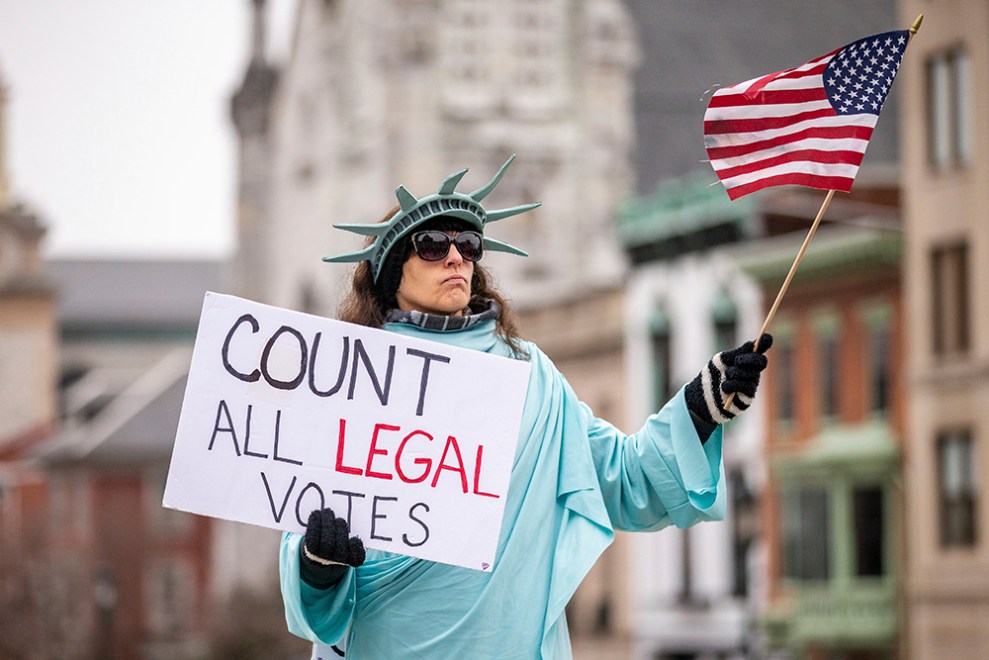The first time many Brazilians heard of Nikolas Ferreira was the day the newly elected federal lawmaker received the highest number of votes in the country’s 2022 legislative elections—and in the history of the key battleground state of Minas Gerais in southeast Brazil. Born in an impoverished favela, the 26-year-old self-described conservative Christian “defender of the family” and advocate for abstinence until marriage is a staunch supporter of far-right President Jair Bolsonaro, who is running for reelection this Sunday in the final round of the most contentious presidential race in recent memory. Ferreira, a baby-faced member of Bolsonaro’s Liberal Party, racked up about 1.5 million votes, almost 500,000 more than the next best performing candidate for the Lower House, and a monumental leap from the 30,000 that had secured him a city council seat in Belo Horizonte in 2020, when he vowed to be a “wall against the leftists.”
“The culture war is here; get ready,” Ferreira wrote a few days after the early October closer-than-expected first round of the election that saw left-leaning former two-term President Luiz Inácio Lula da Silva, better known as Lula, come out on top with 48 percent of the votes. He was promoting his online course, which carries the same title as his book, The Christian and Politics: Discover How to Win the Culture War. His mission is to prepare Christians to prevail on the battlegrounds of abortion, gender ideology, and crime—all extremely familiar subjects for American voters and another example of how, in this presidential election in South America’s largest democracy, life is imitating Donald Trump. “Brazil and the United States are mirrors of each other,” former US ambassador to Brazil Thomas Shannon told BBC News.
“Brazil and the United States are mirrors of each other.”
Bolsonaro, a former army captain and longtime congressman from Rio de Janeiro with a mediocre legislative track record has often been referred to as the “Trump of the tropics.” He rose to power by deliberately evoking “fears, panics, and revulsions” of a perceived deterioration of traditional family values and, similar to Trump, positioning himself as a populist hero and the only true guardian of the people’s will. Ferreira may stand out as one of the most successful exponents of “Bolsonarism”—the MAGA-like reactionary populism cultivated around Bolsonaro and his “God, family, and homeland” motto—but he is joined by many others. Several of the movement’s disciples have been elected to Congress this election cycle, spurring concerns of an ideological hijacking of the legislature by a breed of hardliners. Their performative grievance politics as candidates center on mobilizing dread of social change to manipulate a disaffected electorate and advance an ultra-conservative agenda.
What has taken place during the Brazilian elections this year could easily be mistaken for the GOP’s culture wars, dubbed in Portuguese. In Foreign Affairs, Brian Winter, editor-in-chief of Americas Quarterly, writes, “The campaign’s tone and content sometimes seem to have been cut and pasted from the conservative agenda in the United States.” At an October presidential debate, the incumbent president, who repeatedly cast doubt on the integrity of the electoral process and the institutions overseeing it, doubled down on his signature retrograde discourse. “We want a free country, we don’t want gender ideology, we don’t want drug liberation, and the other side wants it,” Bolsonaro said. “No to abortion, nor the MST [Brazil’s Landless Workers Movement] invading the land, and for the right of self-defense.”
His authoritarian strategy involves creating a political culture organized around an artificial sense of generalized moral panic over a “Holy War” between the pure and virtuous and the heretical and satanic. Opponents of Bolsonaro are presented “as the incarnation of the Antichrist” while he and his followers are the protectors “of the family, the homeland, and the good,” explains political scientist and historian Christian Lynch, co-author of the new book Reactionary Populism: Rise and Legacy of Bolsonarism. “It’s importing the Trumpist techniques to Brazil and adapting them to the Brazilian context.”







